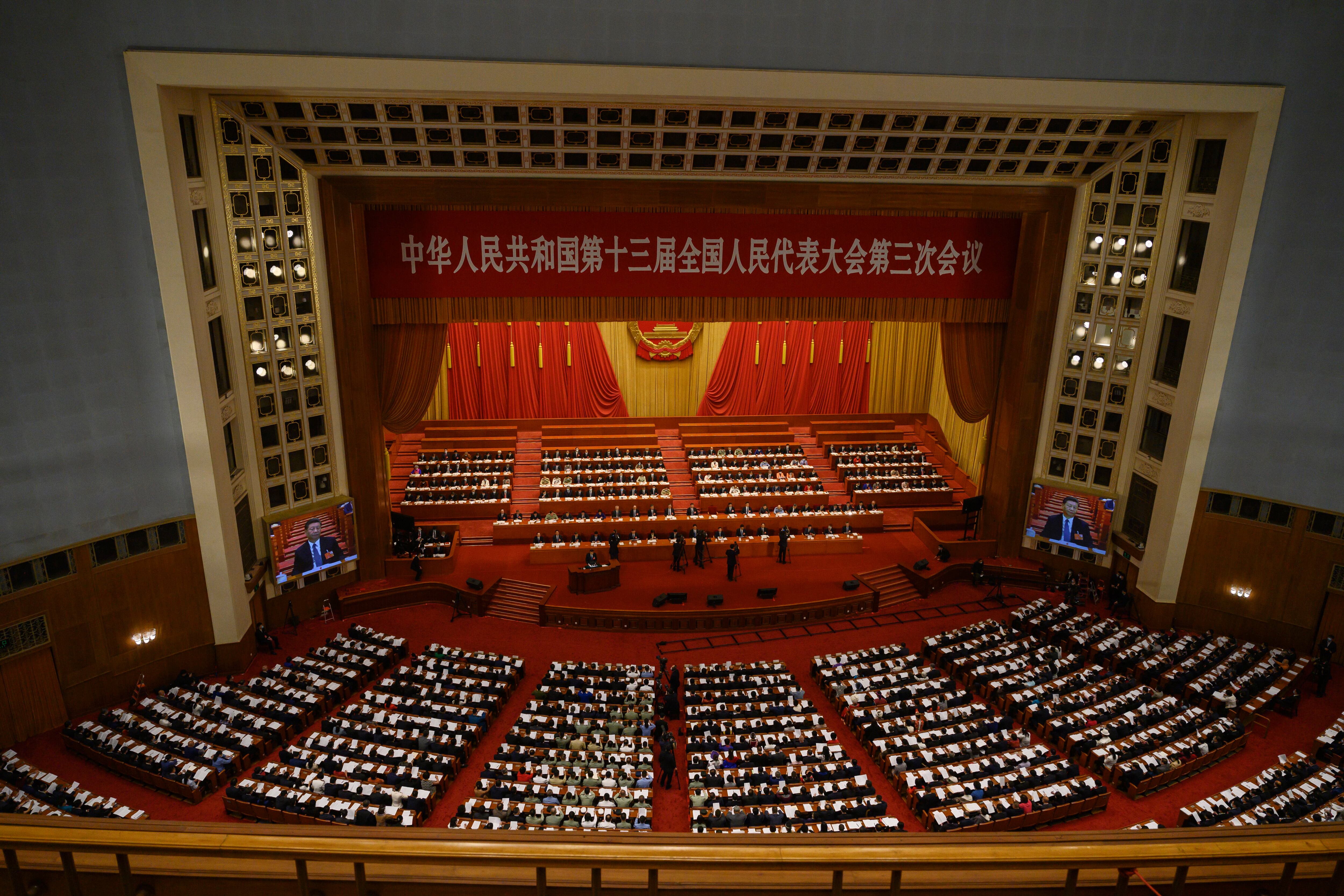President Joe Biden’s creation of a task force to assess existing policies regarding China and develop recommendations for addressing the “pacing threat” the country poses could mark a change in direction for the United States. The task force could also risk falling into the same pattern of past blue-ribbon panels: provide cover for elected officials to back unpopular policy recommendations that will end up fulfilling the wish list of the defense industry.
And if the Senate confirmation hearings for Defense Secretary Lloyd Austin and Deputy Defense Secretary Kathleen Hicks were any indication, Congress will be happy to rubber-stamp increased military spending to address the threat of China.
A quick search through the C-SPAN transcripts for the Austin and Hicks hearings show at least 70 mentions of China between the two Senate hearings. For example, Sen. Jim Inhofe, R-Okla., referring to China and Russia, said: “I believe that we’re in the most dangerous time arguably in our lifetime.” Sen. Jack Reed, D-R.I., spoke to the challenges Austin would face as he focuses on “the near-peer competition with China and Russia.”
Lawmakers, Pentagon leaders and defense industry-funded think tanks have been ramping up “great power competition” rhetoric for years as a ploy to justify greater military spending. For their additional investment, taxpayers received a few extra aircraft and ships, many of which leave much to be desired in terms of performance, while the rest of the force struggles to make do in training and sees operations and maintenance budgets raided.
This specter of an imminent military threat fits within a pattern that emerged after the Korean War nearly 70 years ago. When spending levels threaten to dip, discussion of a new national security threat ramps up to coax defense spending safely upward. Warnings of a supposed missile gap filled newspaper columns at the beginning of the Kennedy administration, and President Ronald Reagan pushed a massive military buildup to flesh out the post-Vietnam War “hollow force” to confront the Soviets.
RELATED

Breathless mentions of China, Russia and “great power competition” appear to be the reaction to Pentagon spending levels dipping below the 5 percent line in 2015 as the post-9/11 wars diminished in scope.
China is an obvious competitor in the 21st century, but does it make sense to build a military to fight to and beyond the shores of the Asian mainland?
It’s virtually impossible to see how such a war could be fought without one side resorting to nuclear weapons. That has been demonstrated in war games conducted by U.S. Strategic Command. Even if such a war could be limited to conventional weapons, any invasion force we could put on the ground in China would be quickly overwhelmed.
But here’s the good news: We don’t have to.
China possesses a decided advantage on its own turf, as Pentagon leaders have seen repeatedly during simulations in which our ships are sunk and air bases obliterated from a distance. With its integrated air defense network, anti-ship missiles and vast number of soldiers, any attempt to attack China within its security perimeter would be a self-inflicted disaster.
But the Chinese military advantage evaporates as you move beyond its shores. The Chinese defenses are almost all based on land and meant to keep invaders at a safe distance rather than project its own military power forward.
The new task force should keep in mind the limits of China’s power and explore opportunities to mirror that strategy to deter any expansionist ambitions from Chinese leadership.
The U.S. could apply a similar strategy to aid our allies in the region. Rather than heavily investing in weapons like Ford-class aircraft carriers and stealth aircraft designed to penetrate territory claimed by China, the United States should build a force capable of stopping any aggressive moves China might attempt in the region.
Our allies like Taiwan and Japan are both increasing the size of their submarine fleets because for China to capture territory across a body of water it requires movement by sea, and transport ships are extremely vulnerable to submarine attacks. So an American denial strategy would see a smaller surface fleet and instead increase the number of our own attack submarines to bolster our regional allies. Crucially, this strategy would cost less and serve to raise the costs of any Chinese invasion force with an undersea spoiling attack.
The challenge facing civilian and military leaders today is not to build new weapons to fight with old ideas. We should first find ways to peacefully coexist with other nations. Failing that, we should find ways to out-think our adversaries. The rhetoric on display in Washington today demonstrates most people are willing to accept the Chinese premise of a future war. But we should be establishing our own premise, one that does not spend our great-grandchildren into poverty and virtually guarantee mutual destruction.
Dan Grazier is the Jack Shanahan military fellow at the Project On Government Oversight. He is a former Marine Corps captain who served tours of duty in Iraq and Afghanistan.






